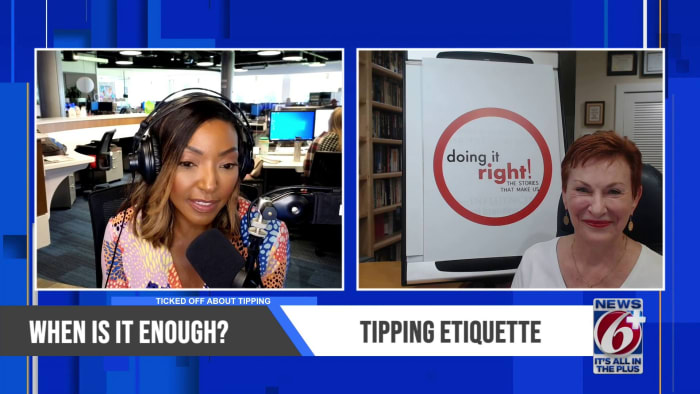Perhaps you’ve noticed. We have reached a tipping point in the country over tipping.
To tip or not to tip has led to Shakespearean soliloquies by customers explaining why they refuse to tip for certain things.
During the height of the COVID-19 pandemic, customers were grateful for those who seemingly risked their safety so we could get groceries, order dinner or anything that made our lives feel normal. A nice tip was the least we could do to show gratitude.
But now that we are out about and back to normal, the custom of tipping for just about everything has somehow remained; and customers are upset.
A new study from Pew Research shows most American adults say tipping is expected in more places than it was five years ago, and there’s no real consensus about how tipping should work.



I haven’t worked in a restaurant in a while but as I remember it: A waiter/waitress is expected to report tips at 8% of the value of the checks they serve - the government assumes they get tips up to that amount. So they have to report tips, but they try to stick juuuust over that 8%. If the customer puts the tip on the credit card, then it’s reported. if it’s a cash tip, it only gets reported if it’s needed to get up to that 8%. Everything else the IRS doesn’t hear about. Waitresses at my restaurant would claim their tips at the end of a shift so it was a daily calculation.
That said, wait staff got $2.14/hr and the restaurant was responsible for making up the difference to minimum wage if there wasn’t enough business. That never happened. Also, this info is about 30 years old and in Florida, so your mileage may vary. Some wait staff make crazy tips (depending on venue) and if they have to claim it, they pay a little more in tax but if they lose tips altogether they lose most of their income.